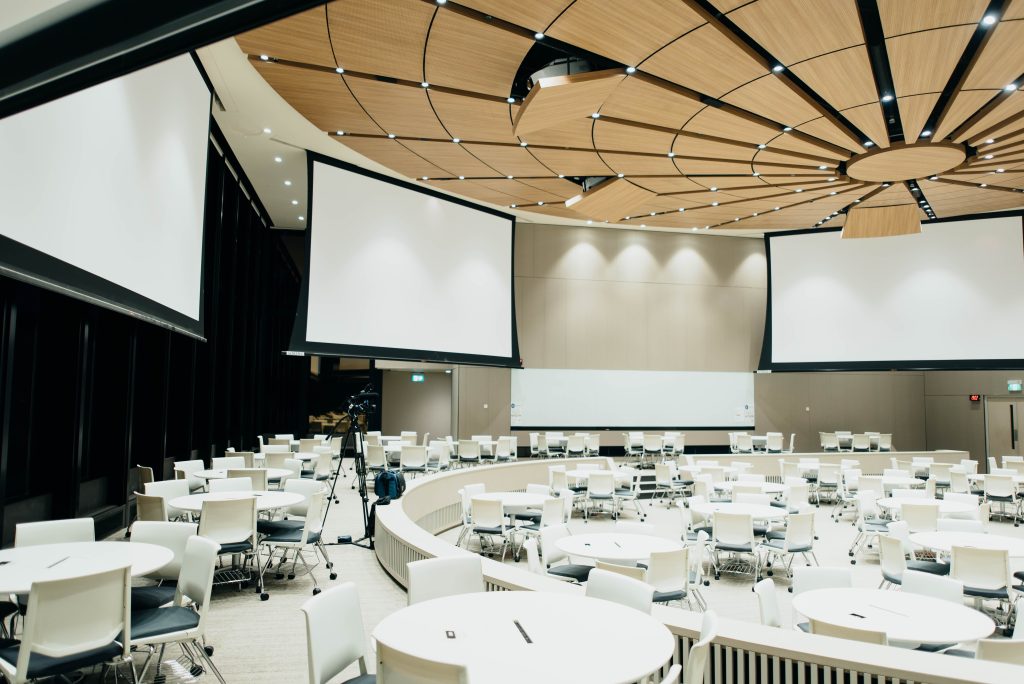Event planning is a complex and multi-faceted process that requires careful coordination and planning to ensure a successful outcome. Whether you’re planning a large-scale conference or a small-scale networking event, a critical aspect of the planning process is creating a timeline. A timeline is a comprehensive schedule that outlines all the key activities and deadlines associated with your event. It serves as a roadmap that helps you keep track of progress and ensure that everything is on track. It’s a way to sort the tasks according to relevance, priority, and the advanced time with which you need to complete them. Organised event planners have their timelines laid out well in advance of the event, making it easier for them to check items off the list one by one. This blog will provide you with an ultimate “how-to” guide to event planning timelines, helping you create a comprehensive timeline that will ensure a successful event.
4-6 Months before the event
- Set the event date – Identify a date that is convenient not only for you as hosts, but also for those who will be attending the event. The date, hour, and day of the week are all important details.
- Put together a crew – Who will be in charge of organising the function? You need both people with big ideas and people who can pay close attention to detail. The odds of winning an event increase in proportion to the team’s diversity of skills and backgrounds.
- Look around at various locations – Start exploring around for a suitable venue. Spend at least a week going to two or three different places per day to accomplish this. Get a clear idea of what each venue has to offer by sending a few members of the planning team to each one. Consider the cost of food, the size of the venue, the amenities available, and the ease of getting there. Reserve the space once you’ve decided on it.
- Create a budget – In case of a business event, you’ll need to present your budget to your superiors for approval, so be sure to include everything from the location to the cost of food and drink, entertainment, advertising, marketing, and equipment.
- Contact sponsors and partners – For business events, now is the time to reach out to businesses and organisations. If they need time to think about it, you should offer them that.
- Contact guests and speakers – Get in touch with the event’s delegates, the speakers and the artists you want to have if they tend to be particularly busy or otherwise unavailable at the time of your event.
- Develop your Event Master Plan – Create an overarching plan for the entire event, down to the software to be used, the speakers to be featured, the games to be played, and everything else.

1-2 Months before the event
- Finalize the schedule – By now, you should have the exact numbers of attendees and speakers, as well as their availability. The moment has come to create the Master Schedule, which should include a detailed description of all the events (including performances, guest appearances, and speeches/presentations). Partner and sponsor participation should be clearly communicated.
- Finalize partners and sponsors – Agreements with potential partners or sponsors should be finalised at this time. Don’t leave finalising specifics with your partners/sponsors until the last minute.
- Send out reminders – This should be a friendly prompt, and it can be done by email or social media. You need people to mark your event in their calendar, but you don’t want to be annoying about it.
- Initiate press releases – Send out press releases to announce the event, but keep in mind that it may take some time for the releases to actually appear in print. Send out your press release to publications a week or so in advance to give them time to write up your story.
- Finalize venue details and logistics – The time has come to finalise the venue arrangements, so plan on making one last trip there to walk over the event with the venue coordinator. Find out what resources they have available, how they intend to assist you, and everything else. Tiny details need to be finalized. These may include, How will people get in and out of the venue? Which location will host the bulk of the events? Do you plan to have a separate area for food and drink, or will it be available in the main hall? Give them a copy of the event schedule so that they can plan accordingly.
- Open Registration – It’s best to start accepting attendees early unless you plan on keeping the event extremely exclusive. Pre-registered attendees are much less likely to cancel at the last minute.
- Designate staff roles – Make sure all of the staff members understand their responsibilities, both large and small, and assign them accordingly. Look over the budget one last time to make sure you’ve accomplished everything on the to-do list within the constraints.
- Increase your online presence – When the countdown is at the 30-day mark, you can go all out on social media. You need to generate excitement for your event if you want people to show up. Campaigns on social media can be very effective in this regard.

1 week before the event
- Do a final check – Finalize everything by double-checking with everyone involved in the event, including the venue coordinator, speakers, vendors, service providers, sponsors, and partners. Check in with everyone to make sure their plans are on track for the big day.
- Brief the hosting team – Prepare the hosting team by briefing all personnel involved in the event and outlining their specific responsibilities. Make sure everyone on your team is on the same page by holding a meeting one week before the event.
- Check registration – Now is the time to review the guest list you collected during registration. Verify that everyone who needs to attend the event has provided the necessary payment and registration information. You may close the registrations at this point to avoid any last-minute rush.
- Invite media – Invite media in attendance for the event. Make necessary arrangements for them with the help of the venue coordinator.
- Go viral – Launch a massive internet campaign, utilising all available online and social media channels. A week before the event, you must confirm that all of your invited guests can attend. Setting up a live streaming platform in advance is another option.
On the big day
- Check with the sponsors/partners – Ensure they are receiving the attention you have promised. They will be more enthusiastic about attending future events if they have a good time at the current one.
- Check the signage and decorations – Ensure that the signage is correctly put in their places so that the attendees find it easier to locate the amenities. Further, a final look at the decor of the event can put a smile on your face!
- Meet & Greet – Don’t get caught up with work and forget to attend to the guests. Spend some quality time with them to make them feel comfortable and etch a memory on the big day.

Not done yet!
- Send out thank-you notes – Write notes of gratitude to everyone who contributed to the success of the event, not just the attendees. It adds a level of professionalism that is sure to be appreciated.
- Get feedback – Conducting a survey after the event is over might help you learn from your attendees’ experiences and improve for future events. For more information, consult the press. Discover how far the word about your function travelled.
- Check the buzz – Find out how far and wide news of your event spread.
- Evaluate the numbers – Where do you stand financially after your event? Did you make a profit, zero, or a loss? Reach, buzz, and good brand recognition are just as crucial as financial success when evaluating the success of your event.
Making a timeline for your event’s preparation is essential for keeping on top of all that needs to be done. Constantly reminding yourself of the end result keeps you motivated and ensures a successful event.
Let Saciva assist you in arranging your premium event. We’ll host a one-of-a-kind event at a top-notch location. If you want to get your company and brand noticed, we can help you organise and carry out an event that will do just that.
Your thoughts on this timeline? Is there something we need to add or remove? Do reach out to us with your thoughts.
